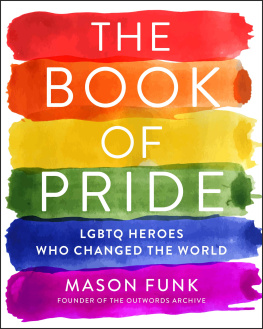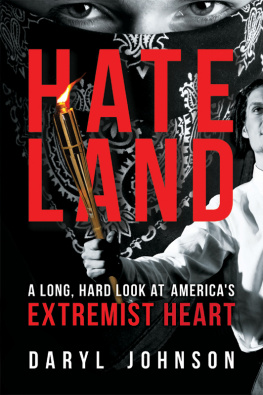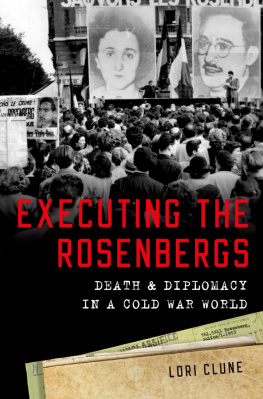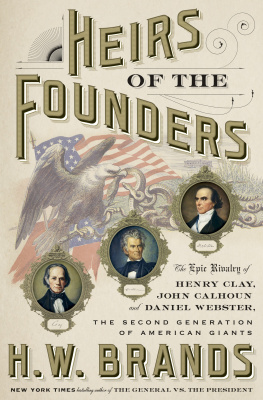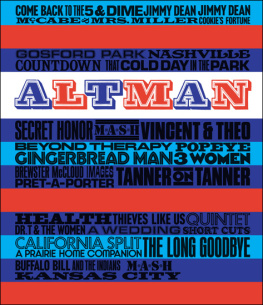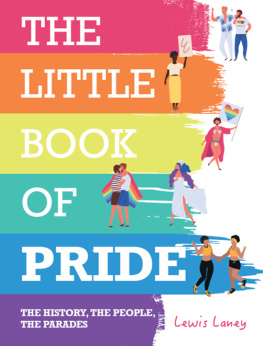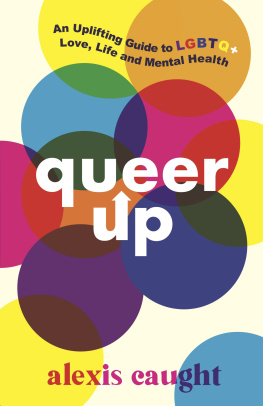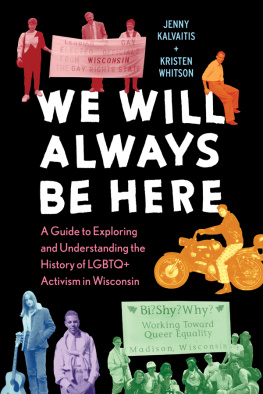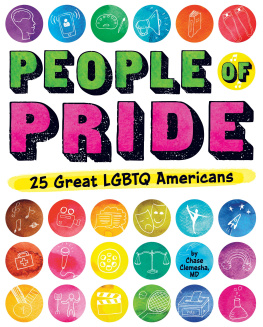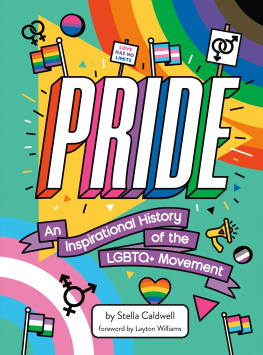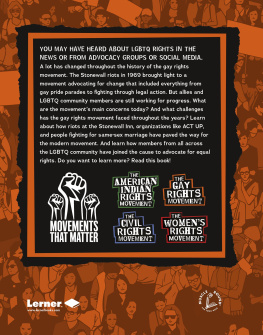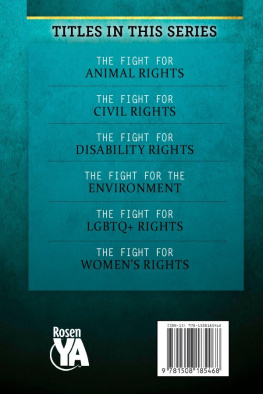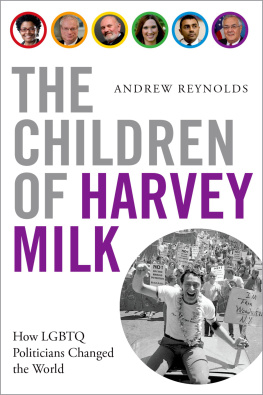THE BOOK OF PRIDE . Copyright 2019 by Mason Funk. All rights reserved under International and Pan-American Copyright Conventions. By payment of the required fees, you have been granted the nonexclusive, nontransferable right to access and read the text of this e-book on-screen. No part of this text may be reproduced, transmitted, downloaded, decompiled, reverse-engineered, or stored in or introduced into any information storage and retrieval system, in any form or by any means, whether electronic or mechanical, now known or hereafter invented, without the express written permission of HarperCollins e-books.
All present-day photo portraits that appear in this book were taken by Mason Funk unless otherwise credited.
Cover design: HarperCollins
Cover art: Vector FX | Shutterstock
FIRST EDITION
Library of Congress Cataloging-in-Publication Data
Names: Funk, Mason, author.
Title: The book of pride : LGBTQ heroes who changed the world / Mason Funk.
Description: First edition. | New York, NY : HarperOne, [2019]
Identifiers: LCCN 2019006758 | ISBN 9780062571700 (trade pbk)
Subjects: LCSH: Sexual minoritiesUnited StatesBiography. | GaysUnited StatesBiography. | Gay rights. Classification: LCC HQ73.3.U6 F86 2019 | DDC 920.0086/6dc23
LC record available at https://lccn.loc.gov/2019006758
Digital Edition MAY 2019 ISBN: 978-0-06-257169-4
Version 04122019
Print ISBN: 978-0-06-257170-0
Contents
O nce upon a time, nearly thirty years ago, I embarked on a daring trip. I joined an expedition of seventy-five people traveling by jeep and motorcycle from Portugal, in southern Europe, to the country of Angola in southern Africa, a distance of around forty-two hundred miles. After months of planning and preparation, vaccinations, and obtaining visas for thirteen countries, we set out in April 1992. But just after wed crossed the border from Algeria into Mali on the southern flank of the Sahara Desert, our trip took a very bad turn. As we drove through a narrow valley with sandy hills on either side, six men emerged from the scrub brush, their faces wrapped in scarves, and raised Kalashnikov submachine guns over their heads. They stopped us in our tracks, and over the next hour, they went from jeep to jeep, stripping us of cash, cameras, and anything else they wanted. Meanwhile, other people came and started driving our jeeps away.
Among our possessions, there was one item we absolutely needed to hold on to: our satellite phone. If the bandits took that phone from us, we would be stranded. It was our lifeline.
Somehow, we hatched a plan. Working in coordination with one another, communicating entirely by glances and head tilts, we managed to smuggle the satellite phone, wrapped in a sleeping bag, from jeep to jeep ahead of the bandits. Then, at a critical moment, we snuck it around and past them into a jeep they had already searched. No small feat, given that the satellite dish was the size of a small coffee table.
When the bandits finally departed, we used the phone to call for help. Days later, the Portuguese government came and airlifted us to safety.
So why introduce The Book of Pride, a collection of interviews with LGBTQ heroes, with this story? Because as this book came together, I often thought of that satellite phone and that terrifying moment in the desert. That phone was the most precious thing in the universe. Hidden inside a sleeping bag, it was like a treasure (with lifesaving ramifications) that needed to be salvaged, protected, and moved from one location to another.
So, also, are the stories in The Book of Pride. The people who have lived these stories are mortal. The force advancing on them is not desert outlaws, but time. Now, as never before, their stories need to be saved, protected, and moved to a new location: the hearts and minds of people who will carry their legacies and their mission forward.
In 2016, I created a project called OUTWORDS to collect, treasure, and share these stories. And this book is our first transmission device.
As I type these words, a thin gold band encircles my left ring finger. Six years ago, my husband, Jay, and I got legally married in our home state of California. Two years later, the US Supreme Court made marriage equality the law of the land. The morning after that historic decision, I picked the Los Angeles Times up off our driveway and went to breakfast at a local caf. I ordered coffee, opened the newspaper, read the headlines, and started crying. I was so happy. Glancing around, a little embarrassed, I saw a man and woman watching me. They could see the headlines. They were smiling. They were happy too. Love is love.
That couple might have been surprised to know that within the American LGBTQ community, the campaign for marriage equality was and is hotly debated. A lot of queer people see marriage as a betrayal of who we are and who we should be. They point to marriages deeply flawed history as a system for men to effectively own women, and they note that today, a majority of marriages end in divorce. Why would we want to buy into such an institution?
That debate reflects a fundamental truthperhaps obvious, perhaps notabout the queer community. On marriage and a thousand other topics (including the word queer, which I like and use interchangeably with LGBTQ), we are not united, and we are not monolithic. We cross boundaries and transcend definition, encompassing every facet of Americas richly pluralistic population.
So why even call us a community? What unites and defines us, in my opinion, is that we are all rule-breakers in one of mainstream societys most deeply entrenched and ferociously protected systems: the roles of women and men. Simply put, we refuse to conform to expectations based on gender, declaring with varying degrees of openness and defiance that who we are, who we love and who we have sex with isnt defined by our anatomy, our appearance, or how others perceive us. Frequently, we take things a step further, asserting that the basic rules of engagementthe either/or, fixed notion of gender and gendered behaviorare flawed.
We refuse to play by the rules. And if our own communitys rules dont feel right, we reject them too. Take . In the early 1970s, Lani came out as a lesbian in San Francisco. A few years later, she surprised herself by falling in love with a man. (Whoops!) Facing condemnation from virtually every side, including many of her lesbian friends, Lani stood her ground. Today, shes one of Americas most honored and cherished bisexual leaders.
is another person who has truly carved his own path. At birth, Marcus was designated female and given the name Mary. When Mary transitioned and became Marcus, he took the middle name DeMariafrom Marybecause he didnt want to buy into the narrative that his former gender identity was wrong. Along the way, Marcus discovered that hes attracted to both men and women, so today he identifies as a bisexual man. Hell take complexity over categories any day.
Lani, Marcus, and everyone else in this book represent where I hope the human race is headed. In moving toward more freedom, openness, and transparency, they are also moving toward more integrity. In living by their own rules and being exactly and unapologetically who they are, they are helping create a world where other people can do the same.
Our elders didnt necessarily choose this leadership role. I didnt. But when it was offered to me, I accepted it. I accepted it when I came out as gay, and I continue to accept it every time I make the effort to honestly be and express who I am. Every time I do that, I hope and believe I make it a little easier for someone else to do the same.

